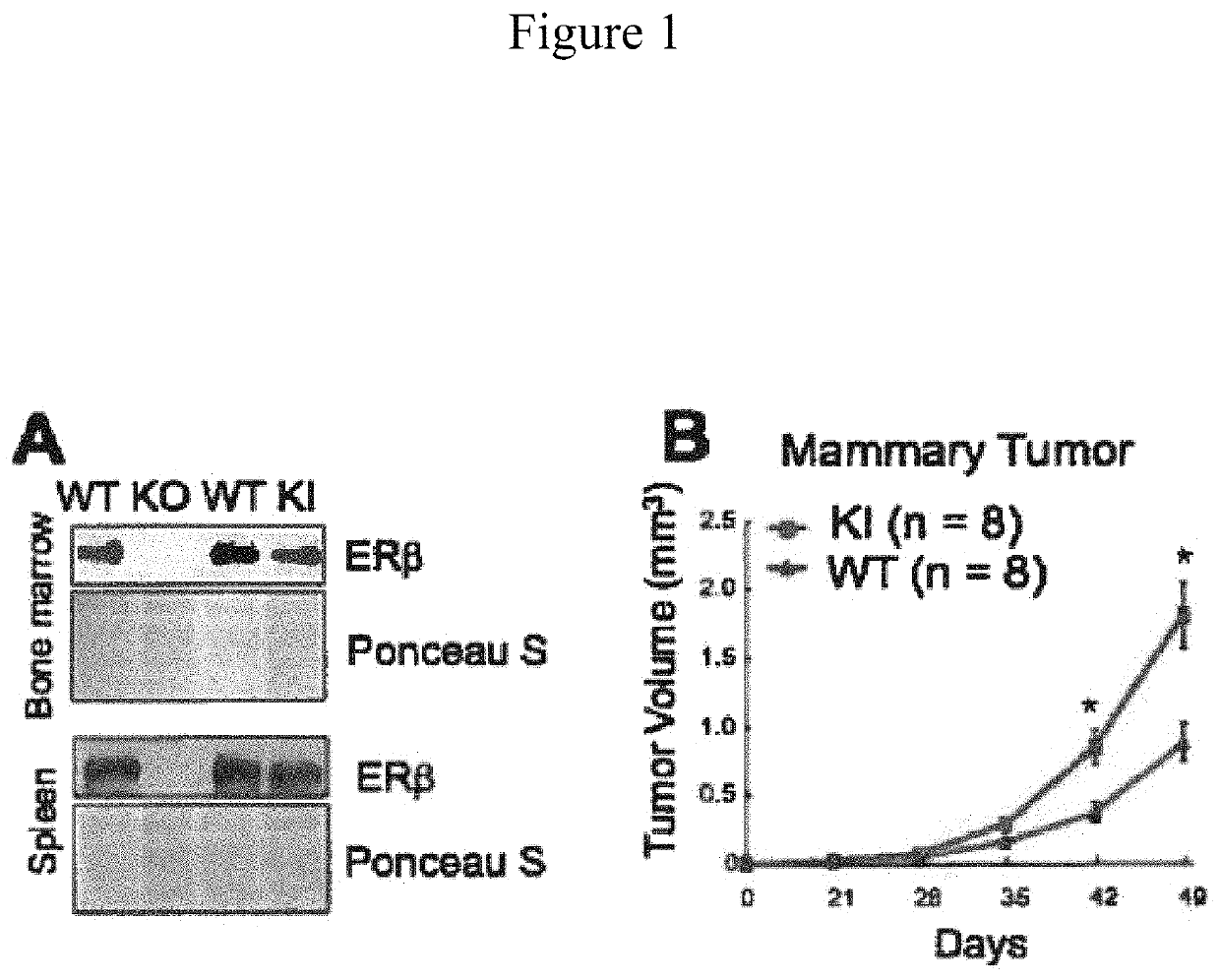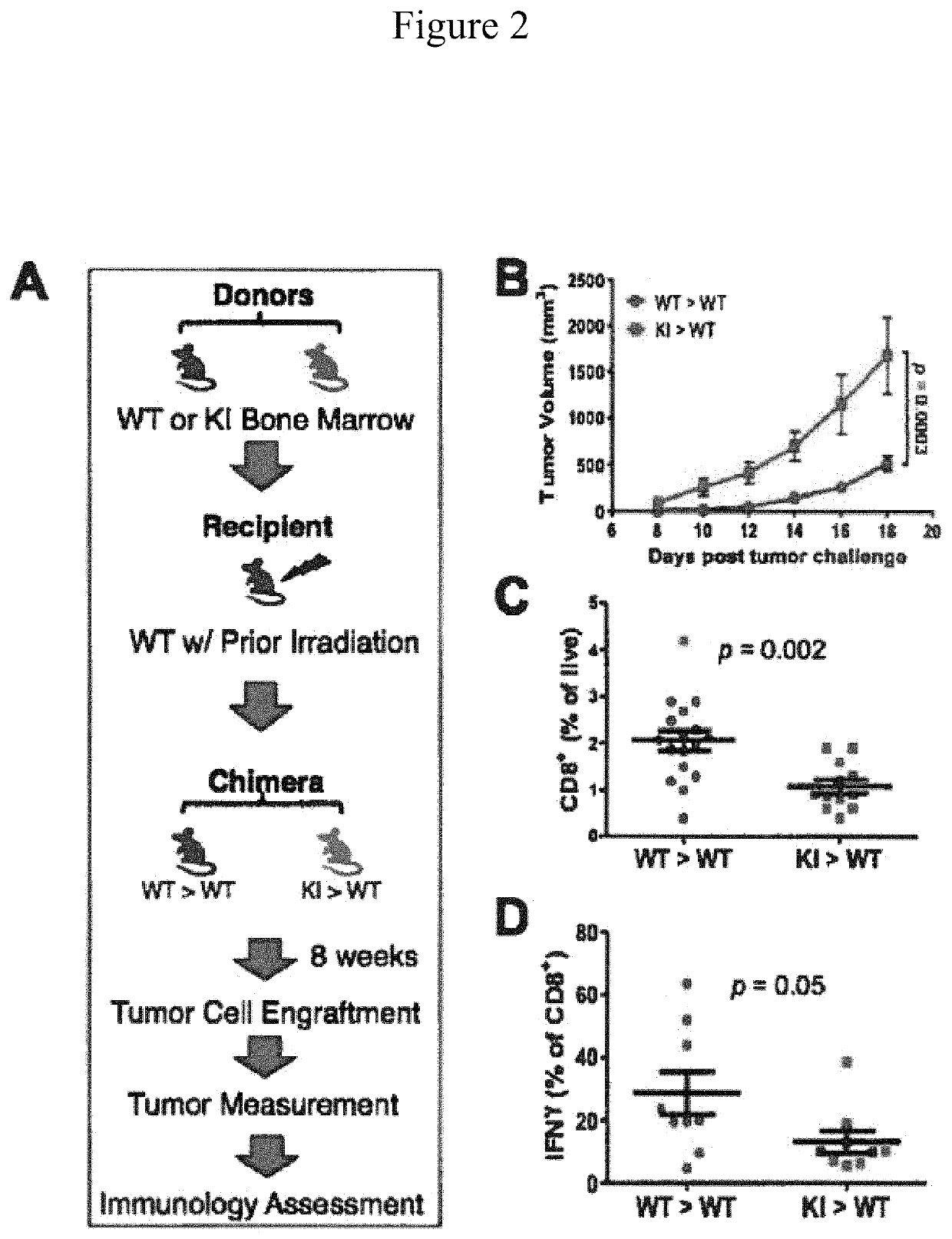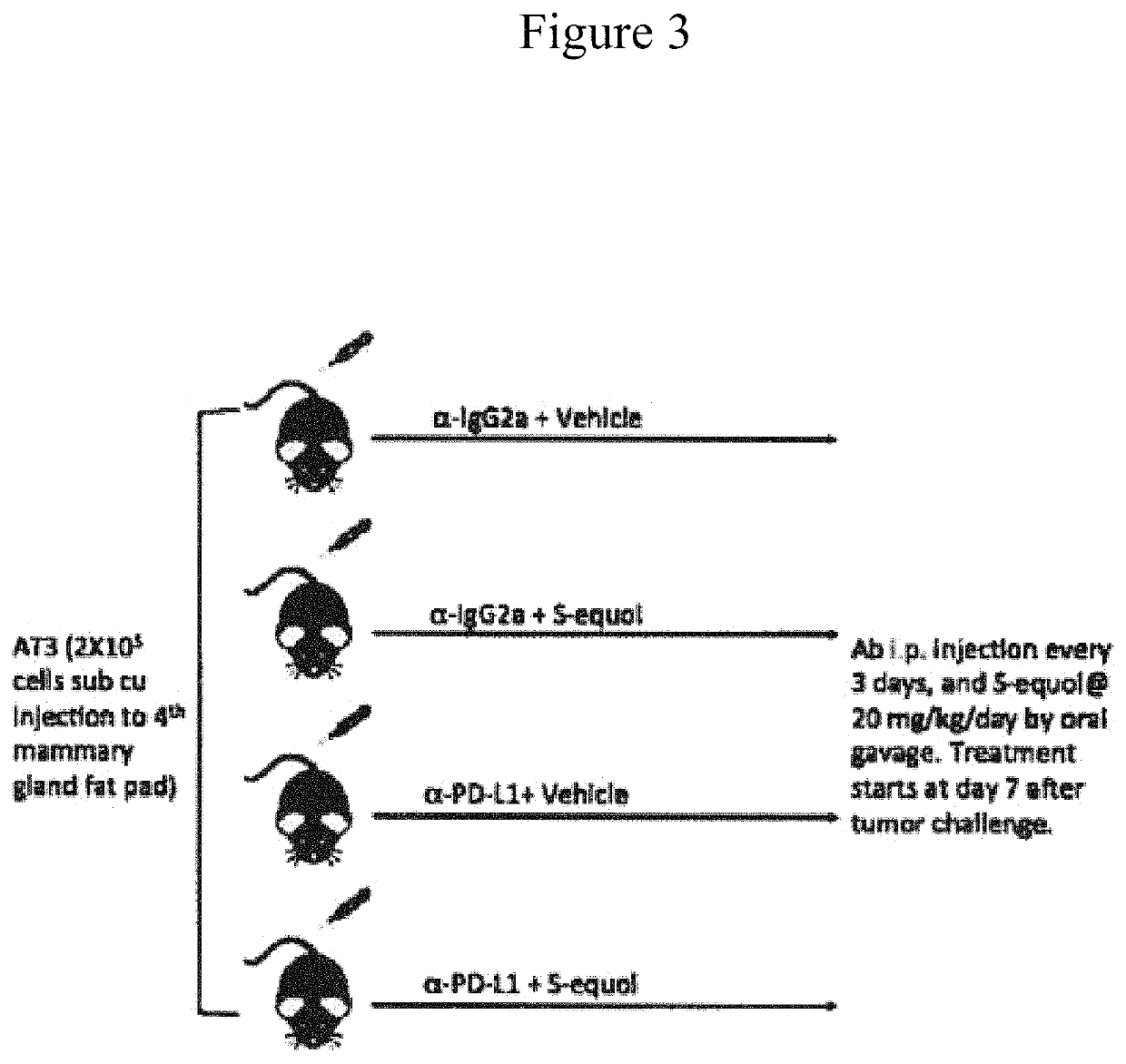Methods of treating and preventing breast cancer with S-equol
a technology of s-equol and breast cancer, applied in the field of methods, can solve the problems of apoptosis of the target cell, no explanation, and unnecessary toxicity of current chemotherapies, and achieve the effect of preventing apoptosis and preventing apoptosis
- Summary
- Abstract
- Description
- Claims
- Application Information
AI Technical Summary
Benefits of technology
Problems solved by technology
Method used
Image
Examples
example 1
[0091]To determine whether the newly identified phosphotyrosine switch regulates ERβ tumor-extrinsic function, a whole-body knock-in (Kl) mouse model (C57BL / 6) was established in which the corresponding tyrosine residue of endogenous mouse ERβ is mutated to phenylalanine (Y-F). Consistent with previously reported ERβ knockout (KO) mice (Krege et al. (1998)), these phosphorylation mutant KI mice had no overt developmental defects and were grossly indistinguishable from their WT littermates (unpublished data). Survey of ERβ expression in KO and KI mice indicated that the Y-F mutant protein was expressed at levels comparable to WT ERβ in multiple tissues, including bone marrow and spleen (FIG. 1A). Syngeneic murine tumor cells of various origins were then transplanted, including the MMTV-Wnt mammary tumor cell line with a basal-like breast cancer profile (Pfefferle et al. (2013)), into WT and KI recipient mice. In all cases, tumor cells grew more robustly in ERβ KI recipient mice than ...
example 2
[0092]The following experiment sought to delineate further the host ERβ signaling in tumor inhibition based on the role of antitumor immunity and recent clinical advances in cancer immunotherapies (Topalian et al. (2015); Chen and Flies (2013); Sharma and Allison (2015)). A mouse chimera experiment was conducted involving a bone marrow transplant. As illustrated in FIG. 2A, WT recipient mice were first irradiated (10 Gy) to kill endogenous bone marrow cells, followed by transplant with bone marrow from syngeneic KI or WT donors. After confirming successful chimerism in KI>WT and WT>WT mice, tumor cells were injected 8 weeks after bone marrow transplant. Tumor growth was significantly greater in KI>WT chimeras (with KI immune cells) versus WT>WT controls (FIG. 2B). This suggests that KI immune cells poorly controlled tumor growth. Thus, these data link the importance of tumor extrinsic ERβ antitumor activity to the immune response.
example 3
[0093]Next, tumor-infiltrating immune cell populations were analyzed. Total numbers of tumor-infiltrating CD4+ and CD8+ T cells were reduced in KI>WT versus WT>WT mice (FIG. 2C and data not shown), further supporting the notion that antitumor immunity in KI mice is compromised. Furthermore, the prevalence of IFNγ-producing CD8+ (antitumor) cells was significantly lower in tumors from KI>WT versus WT>WT mice (FIG. 2D), suggesting compromised cytotoxic potency of CD8+ T cells in the absence of functional ERβ signaling. Additional preliminary data not shown here indicate that activation of dendritic cells, which prime antitumor T cells, was also compromised in KI>WT chimeric mice, as evidenced by their reduced MHC-II expression. Furthermore, effector T cells were less activated (lower CD44 / CD62L) and had other reduced effector functions in KI>WT chimeras [e.g., lower tumor necrosis factor alpha (TNF)α, interleukin (IL)-2, and perforin, data not shown]. These data strongly suggest ERβ-d...
PUM
| Property | Measurement | Unit |
|---|---|---|
| thickness | aaaaa | aaaaa |
| size | aaaaa | aaaaa |
| heterogeneous | aaaaa | aaaaa |
Abstract
Description
Claims
Application Information
 Login to View More
Login to View More - R&D
- Intellectual Property
- Life Sciences
- Materials
- Tech Scout
- Unparalleled Data Quality
- Higher Quality Content
- 60% Fewer Hallucinations
Browse by: Latest US Patents, China's latest patents, Technical Efficacy Thesaurus, Application Domain, Technology Topic, Popular Technical Reports.
© 2025 PatSnap. All rights reserved.Legal|Privacy policy|Modern Slavery Act Transparency Statement|Sitemap|About US| Contact US: help@patsnap.com



